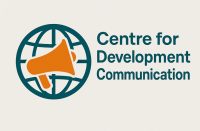This clarification has become necessary because many people — including practitioners — often confuse participatory development with participation in development. Yet, the distinction between the two is fundamental to how we design and implement truly inclusive and effective interventions.
During a recent field visit to six rural communities across Lapai, Paikoro, and Wushishi (Niger State), and Otukpo, Gboko, and Oshongo (Benue State), I engaged with rural farmers who had been involved in the USAID Feed the Future Nigeria Agro-Business Project. The farmers shared that although they were invited to a town hall to learn about a new agricultural initiative, none of them were involved in shaping or planning the intervention.
They participated in the meeting — but not in the process.
This is the key difference:
🔹 Participation in development is often symbolic. It involves inviting communities to events or activities after major decisions have been made. It may look inclusive on the surface but is usually designed to tick a donor’s checkbox, not to empower people.
🔹 Participatory development, however, is fundamentally different. It begins with the community. It empowers them to define their priorities, shape the intervention, and drive the process — from ideation to implementation to Monitoring and Evaluation (M&E).
Take our recent family planning intervention in Zuma community, Bwari Area Council, FCT-Abuja. The project only succeeded because we practiced participatory development. The community identified the trusted nurse, chose discussion topics, selected meeting times, and picked locations. Our role was to guide, not dictate. The result? Community ownership, deeper engagement, and long-term adoption.
Our internal review of multiple interventions shows a clear pattern: projects rooted in participatory development are more successful and sustainable than those that merely invite participation.
By extension, many development initiatives in Nigeria fail — not because of poor funding — but due to poor design that excludes the very communities they claim to serve.
Let’s be clear
Development should not be a performance of inclusion. It should be the practice of shared power.
So here’s the challenge:
Think back on the last project you were part of — was it truly participatory, or were people simply asked to participate?
Let’s have that honest conversation. Tag a colleague, a donor agency, or a CSO leader who needs to reflect on this distinction.
Audu Liberty Oseni
Director, Centre for Development Communication (CDC)
